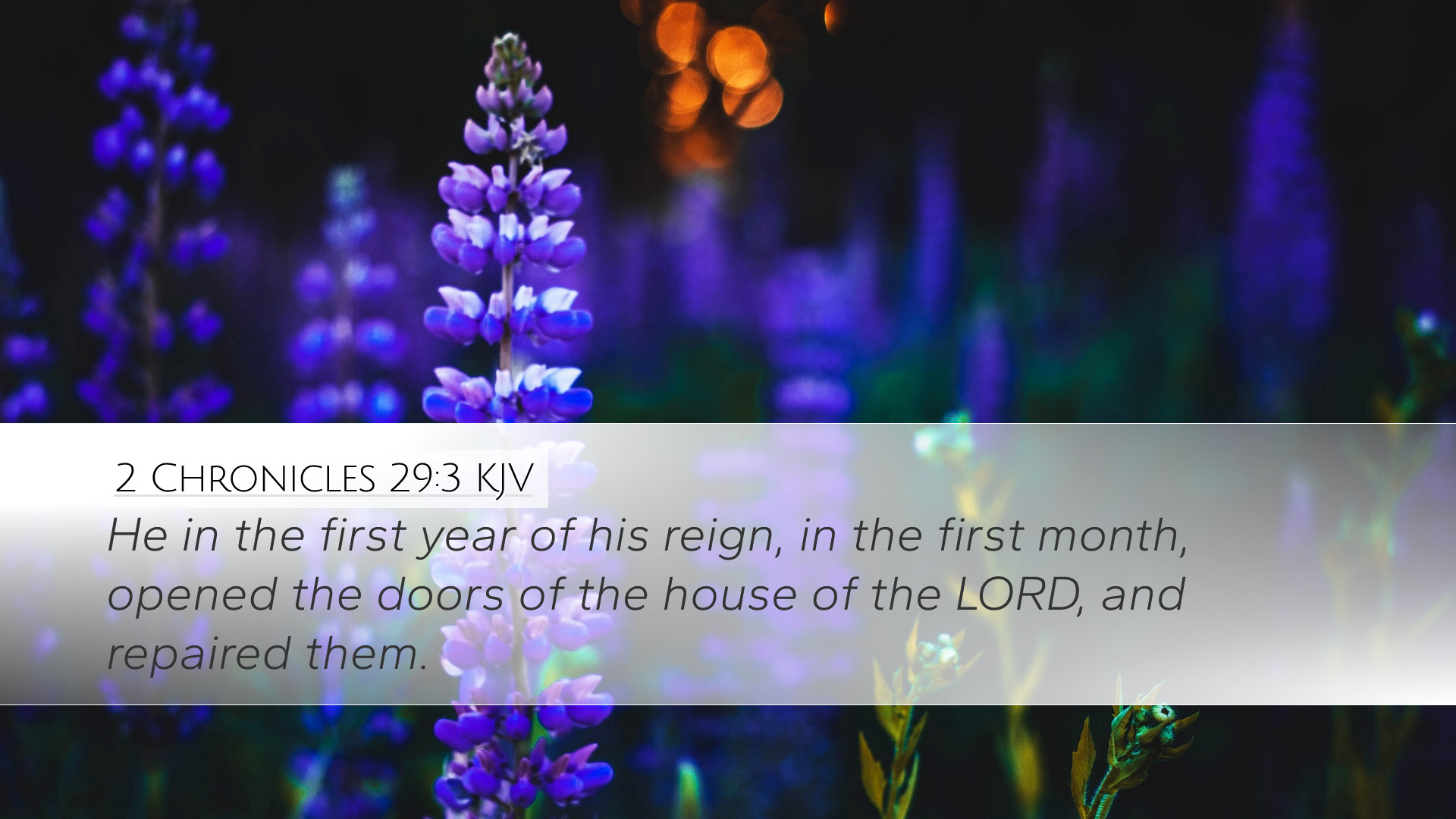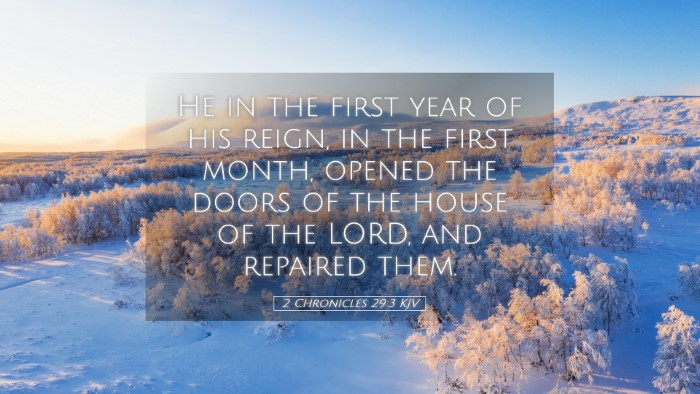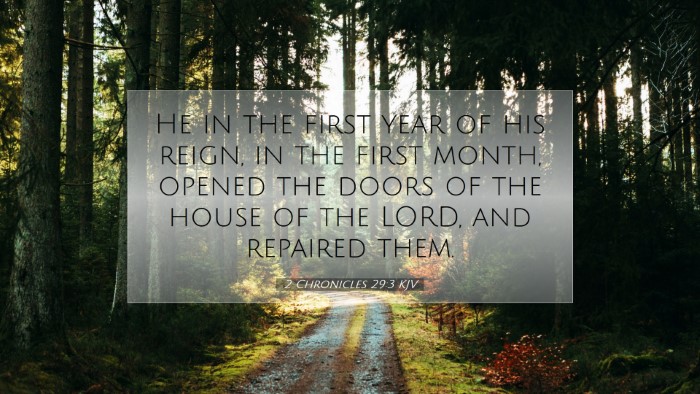Commentary on 2 Chronicles 29:3
In 2 Chronicles 29:3, we encounter a pivotal moment in the history of Judah under King Hezekiah's reign. This verse reads:
"In the first year of his reign, in the first month, he opened the doors of the house of the Lord and repaired them."
Historical Context
This verse signifies the commencement of Hezekiah's reign and his immediate actions concerning the temple of the Lord. After a period of neglect and idolatry under previous kings, Hezekiah's efforts reflect a significant restoration of true worship and covenant identity of Israel.
Insights from Public Domain Commentaries
Matthew Henry's Commentary
Henry emphasizes the promptness and thoroughness of Hezekiah's reforms. He notes:
- Timeliness of Action: It is crucial that Hezekiah acted swiftly in the first month of his reign, indicating that spiritual restoration cannot be delayed.
- Opening the Doors: The act of opening the doors of the house of the Lord symbolizes accessibility and the invitation to worship, suggesting that true repentance calls for returning to God's presence.
- Repairing the Temple: Hezekiah's initiative to repair the temple reflects the need for restoration in our lives and communities; it is a physical and spiritual endeavor to bring back what has been compromised.
Albert Barnes' Commentary
Barnes provides a perspective on the significance of the temple in Israel's national life:
- Symbol of God's Presence: The temple is not just a building; it embodies God's covenant with His people. By repairing the temple, Hezekiah signals a restoration of the relationship between God and Judah.
- Spiritual Renewal: The first actions of Hezekiah show a deep commitment to spiritual renewal, highlighting that true leaders must prioritize the spiritual well-being of their people.
Adam Clarke's Commentary
Clarke elucidates the deeper implications of this verse regarding Hezekiah's character and leadership:
- Role of Leadership: Hezekiah's immediate focus on temple restoration demonstrates the crucial role of leaders in facilitating worship and obeying God's commands.
- Encouragement of the People: Clarke suggests that such actions inspire the nation to return to God, encouraging collective repentance and action among the people of Judah.
Theological Reflections
The verse prompts theological considerations about worship, repentance, and restoration:
- Worship as a Priority: Hezekiah teaches us that worship must be a foremost priority in the life of a community and an individual.
- Repentance and Restoration: Just as Hezekiah repaired the temple, God's people today are called to identify and mend broken areas in their worship and relationship with Him.
Application for Today
As we reflect on the actions of King Hezekiah, several applications emerge for contemporary believers:
- Immediate Action: Like Hezekiah, we should not procrastinate in addressing spiritual matters but instead take decisive action.
- Restoration of Worship: Consider what areas of your life or church community need restoration and prioritize projects that glorify God.
- Leadership Responsibility: Those in leadership are reminded of their responsibility to facilitate and encourage worship, ensuring that the house of God is cared for and accessible.
Conclusion
The actions of Hezekiah in 2 Chronicles 29:3 provide timeless principles for spiritual leadership and the importance of restoring proper worship. Hezekiah’s reforms resonate beyond his immediate context, illustrating that effective leadership entails a prompt return to God and a commitment to sustaining worship in its proper place.


